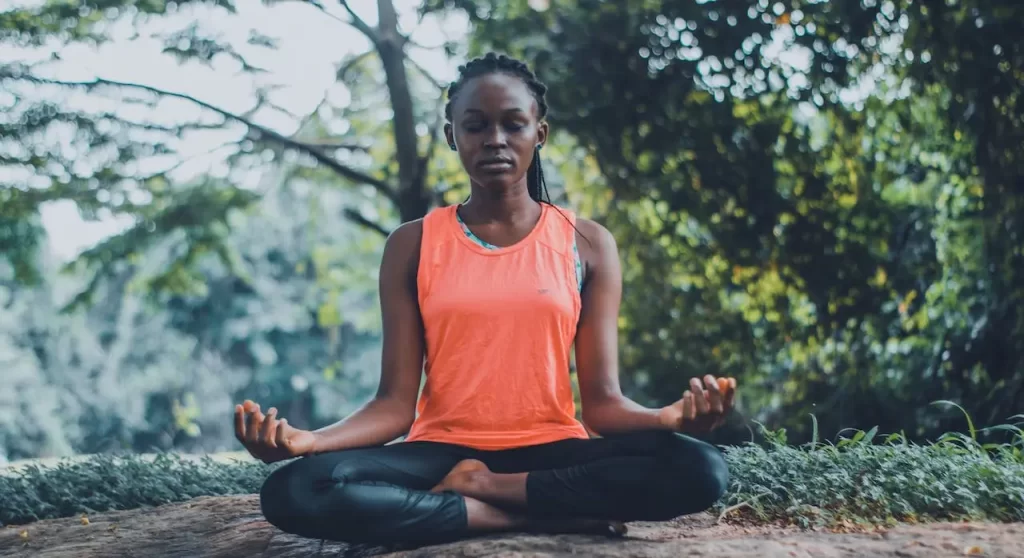Discover the transformative power of the Ayahuasca experience. Explore the spiritual, therapeutic, and cultural dimensions of this ancient ritual.
Introduction
Ayahuasca, a powerful and ancient plant-based brew, has roots deeply embedded in the indigenous cultures of the Amazon basin. This sacred concoction, made primarily from the Banisteriopsis caapi vine and the Psychotria viridis leaf, has been used for centuries by native tribes for its profound spiritual and healing properties. Traditionally, Ayahuasca ceremonies were integral to the cultural fabric of these societies, serving as gateways to the spiritual world and tools for psychological introspection.
In recent years, Ayahuasca has captured the global imagination, transcending its indigenous origins to gain recognition as a tool for spiritual awakening and psychological therapy. People from all walks of life are now seeking Ayahuasca experiences drawn by stories of transformative journeys and the potential for profound personal growth. This rising global interest has sparked a conversation about the therapeutic uses of Ayahuasca, as well as its place in modern society.
Understanding Ayahuasca
What is Ayahuasca? Composition and preparation
Ayahuasca is a brew with a complex composition, primarily involving the Banisteriopsis caapi vine, known for its MAO-inhibiting properties, and the Psychotria viridis leaf, which contains DMT, a powerful psychedelic compound. Preparing Ayahuasca is a meticulous process, often involving a lengthy simmering of these plants to extract their psychoactive ingredients. The resulting brew is a potent mixture that facilitates an intense journey into the depths of consciousness.
Historical and cultural significance of Ayahuasca in Indigenous societies
For centuries, Ayahuasca has been a cornerstone of spiritual and medicinal practices among indigenous peoples of the Amazon. It is revered as a sacred medicine, capable of healing physical ailments and providing spiritual guidance. Ayahuasca ceremonies are deeply embedded in these cultures, serving as a bridge between the physical and spiritual worlds and allowing participants to confront personal, psychological, and spiritual issues under the guidance of experienced shamans. Learn more.
The Ayahuasca Ceremony
Preparing for an Ayahuasca ceremony: Set, setting, and intention
The success of an Ayahuasca journey often hinges on careful preparation, with an emphasis on the right mindset (set), a supportive and safe environment (setting), and a clear purpose or intention. Participants are usually advised to follow a diet free from stimulants and toxins and to approach the ceremony with respect, openness, and a willingness to confront whatever experiences may arise.
The role of the Shaman or Facilitator in guiding the experience
Shamans or facilitators are integral to the Ayahuasca ceremony. They guide participants through their experiences with wisdom and care. They create a safe space, use traditional songs (icaros) to navigate the experience, and provide support and interpretation to help participants process their visions and emotions.
Common elements of the ceremony: Music, icaros, and the communal experience
Music and icaros are central to the Ayahuasca ceremony, believed to guide the healing process and shape the journey. These traditional songs vary from culture to culture but serve a universal purpose of protection, healing, and guidance. The communal aspect of the ceremony also plays a critical role, as participants share a sacred space and often report a sense of unity and interconnectedness with the group and the universe.
This introduction to Ayahuasca, its cultural significance, and the ceremonial process provide a foundation for understanding the profound impact this ancient brew can have on individuals seeking spiritual growth and healing. The global rise in interest in Ayahuasca reflects a broader search for meaning and healing in the modern world, highlighting the timeless relevance of this traditional medicine.

The Experience Unveiled
Embarking on an Ayahuasca journey transcends mere physical ingestion, unfolding into a profound voyage of physical, emotional, and spiritual awakening. This transformative process can be segmented into distinct phases, each marked by unique insights and revelations.
- Physical Phase: The initial encounter with Ayahuasca often introduces a myriad of bodily sensations. Participants might experience nausea, dizziness, or an overwhelming sense of euphoria. Though sometimes challenging, these sensations are considered the body’s way of purifying and preparing for more profound revelations.
- Emotional and Spiritual Insights: As the journey progresses, the Ayahuasca experience deepens into emotional and spiritual realms. Participants frequently encounter vivid visions, from abstract patterns to intricate, narrative-driven scenarios. These visions can evoke profound emotional responses, offering insights into personal traumas, joy, and an interconnectedness with the universe.
- Common Visions and Sensations: Certain motifs recur with intriguing regularity among the tapestry of visions. Participants often describe encounters with nature, animals, or ancestral spirits, each imparting wisdom or guidance. The sensation of traversing multiple dimensions or times is another hallmark, illustrating the boundless nature of the human psyche.
- Personal Stories of Transformation: The true essence of the Ayahuasca experience often shines through individual transformation stories. Testimonials abound of lives radically changed — individuals overcoming addiction, healing from deep-seated traumas, or experiencing a renewed sense of purpose and connection to the world around them.
The Science Behind the Experience
The mystical veil of the Ayahuasca experience finds grounding in rigorous psychedelic research, shedding light on how this potent brew influences the brain, potentially offering new pathways for treating mental health and addiction.
- Psychedelic Research: Scientific investigations into Ayahuasca have revealed its capacity to affect brain regions involved in emotion regulation and self-reflection. By altering neurotransmitter activity, Ayahuasca appears to create a state of heightened plasticity, where old patterns can be broken and new connections formed.
- Potential Therapeutic Benefits: This plasticity holds promise for addressing complex issues such as depression, PTSD, and substance addiction. Through its ability to bring submerged memories and emotions to the surface, Ayahuasca facilitates a unique therapeutic process, enabling individuals to confront and integrate aspects of their psyche often inaccessible through traditional therapies.
- Challenges and Controversies: Despite its potential, the scientific study of Ayahuasca faces hurdles. Variability in brew composition, the subjective nature of the experience, and legal restrictions in many countries pose significant challenges. Moreover, the ethical implications of its use, particularly concerning informed consent and the potential for re-traumatization, continue to spark debate within the scientific and therapeutic communities.
This exploration into the Ayahuasca experience and its underlying science underscores a journey that is as complex as it is profound. Bridging ancient wisdom with modern research, Ayahuasca offers a fascinating glimpse into the potential of psychedelics to heal and transform, inviting us to reconsider the boundaries of consciousness and the healing power of the mind.
Health and Safety Considerations
When exploring the Ayahuasca experience, it’s crucial to approach this journey with a deep understanding of both the potential benefits and the risks involved. The Ayahuasca brew, revered for its profound spiritual and psychological effects, also comes with its set of health and safety considerations that cannot be overlooked.
- Physical and Psychological Risks of Ayahuasca Use
- Ayahuasca can induce intense, sometimes challenging experiences, including nausea, vomiting, and diarrhoea, which are often considered part of the cleansing process.
- Psychologically, Ayahuasca can unearth deep-seated emotional and mental issues, leading to intense experiences that may not always be positive. Individuals with a history of psychiatric disorders should approach Ayahuasca with caution, as it can potentially exacerbate certain conditions.
- Importance of Medical Screening and Psychological Preparation
- Before participating in an Ayahuasca ceremony, undergoing thorough medical screening is imperative to identify any health conditions that may contraindicate its use.
- Psychological preparation, including setting intentions and understanding potential outcomes, is equally important. Engaging with a knowledgeable guide or therapist experienced in Ayahuasca’s use can provide invaluable support.
- Navigating the Ayahuasca Experience Safely: Tips and Recommendations
- Seek out reputable facilitators or centres with a track record of safety and support.
- Honestly, disclose all health information during pre-ceremony screenings.
- Prepare mentally and physically by following dietary and health guidelines provided by the ceremony leaders.
- Remain open to the experience, knowing that support is available from facilitators throughout the process.
Legal Landscape
The legal status of Ayahuasca varies significantly around the globe, reflecting a complex interplay between traditional spiritual practices, modern therapeutic potential, and international drug policies.
- Ayahuasca Legality: A Country-by-Country Overview
- In countries like Peru, Brazil, and Colombia, Ayahuasca is legal and integrated into traditional and religious ceremonies.
- In the United States, Ayahuasca can be used legally by certain religious groups, thanks to rulings that protect its use on religious grounds.
- European countries vary widely in their approach, with some allowing controlled use and others banning it outright.
- The Debate Around Religious Freedom and Drug Policy
- The use of Ayahuasca has sparked significant debate over religious freedom, with proponents arguing that its use in spiritual ceremonies is a protected right.
- Opponents often raise concerns about health and safety, along with the potential for abuse, leading to complex legal challenges and discussions.
- The Future of Ayahuasca Legality and Therapeutic Use
- As research into Ayahuasca’s potential therapeutic benefits continues to grow, there’s a possibility that laws may evolve to accommodate its use under medical supervision.
- The dialogue between traditional indigenous practices, religious freedom, and modern therapeutic applications shapes the future legal landscape, suggesting a cautious yet hopeful path towards broader acceptance and regulation.
Ethical and Sustainability Concerns
As the Ayahuasca experience gains popularity worldwide, addressing the ethical and sustainability concerns associated with its use is crucial. The profound impact of Ayahuasca tourism on Indigenous communities, conservation of the Ayahuasca vine, and ethical participation in ceremonies are areas requiring thoughtful consideration.
- The Impact of Ayahuasca Tourism on Indigenous Communities
- Ayahuasca tourism has surged, increasing interactions between Indigenous communities and international visitors. This phenomenon has both positive and negative ramifications. While it provides economic benefits to these communities, it also poses risks to their cultural integrity and traditions.
- Preserving the authenticity and sacredness of Ayahuasca ceremonies is paramount. Tourists seeking the Ayahuasca experience should approach the practice with respect, seeking to understand and honour its cultural significance.
- Conservation Concerns: Ensuring the Sustainable Harvest of Ayahuasca Vines
- The rising demand for Ayahuasca has pressured the natural habitats where the Ayahuasca vine (Banisteriopsis caapi) grows. Sustainable harvesting practices are essential to protect these ecosystems and ensure the plant’s availability for future generations.
- Supporting conservation efforts and initiatives that promote the regenerative cultivation of Ayahuasca vines can mitigate adverse environmental impacts. Participants should favour ceremonies that source Ayahuasca responsibly.
- Ethical Considerations in Participating in Ayahuasca Ceremonies
- Ethical participation involves recognizing and upholding the sacredness of the Ayahuasca ceremony. This means engaging with communities and facilitators who practice with integrity, respect for tradition, and a commitment to the well-being of all participants.
- Informed consent is crucial. Participants should be fully aware of the potential risks and benefits of the Ayahuasca experience. Facilitators must be transparent regarding the sourcing of Ayahuasca and the conduct of the ceremony.

Final words
- Summarizing the Ayahuasca Journey: Complexities, Insights, and Transformations
- The Ayahuasca experience is a journey of profound complexity, offering insights into the self, nature, and the universe. Participants often report transformative effects, affecting their spiritual beliefs, mental health, and perspective on life.
- It’s a path that intertwines the ancient with the modern, challenging individuals to confront their deepest fears and embrace their highest potential.
- The Ongoing Exploration of Ayahuasca’s Potential: Scientific, Spiritual, and Therapeutic Frontiers
- Research into Ayahuasca’s effects continues to unveil its potential in treating mental health disorders, enhancing spiritual well-being, and fostering personal growth. The balance between scientific inquiry, spiritual respect, and therapeutic application is delicate but essential.
- As we further understand Ayahuasca, it’s crucial to maintain an ethical framework that respects its origins, cultural significance, and ecological sustainability.
- Final Thoughts: Integrating the Ayahuasca Experience into Daily Life
- Integrating the insights and transformations gained from the Ayahuasca experience into one’s daily life is a critical aspect of the journey. It’s about carrying the lessons of love, interconnectedness, and personal growth into our everyday actions and relationships.
- The Ayahuasca journey doesn’t end with the ceremony; it’s a continuous path of learning, healing, and evolving. It challenges us to live with greater awareness, compassion, and respect for all beings and the planet.
- Discover Top Stories
- Hatha Yoga Mastery: What Defines It?
- Energy Healing Insight
- Sound Healing Wonders: Soothing Resonance
- Meditation Retreats Near Me: Reconnect With Peace
- Spirited Awakening: Deep Spiritual Exploration
- Spiritualism: Journey Within
- Starter Yoga For Beginners
- Sacred Plant Medicine: For Holistic Health
- Sacred Plant Secrets: Exploring Nature’s Divine Gifts

